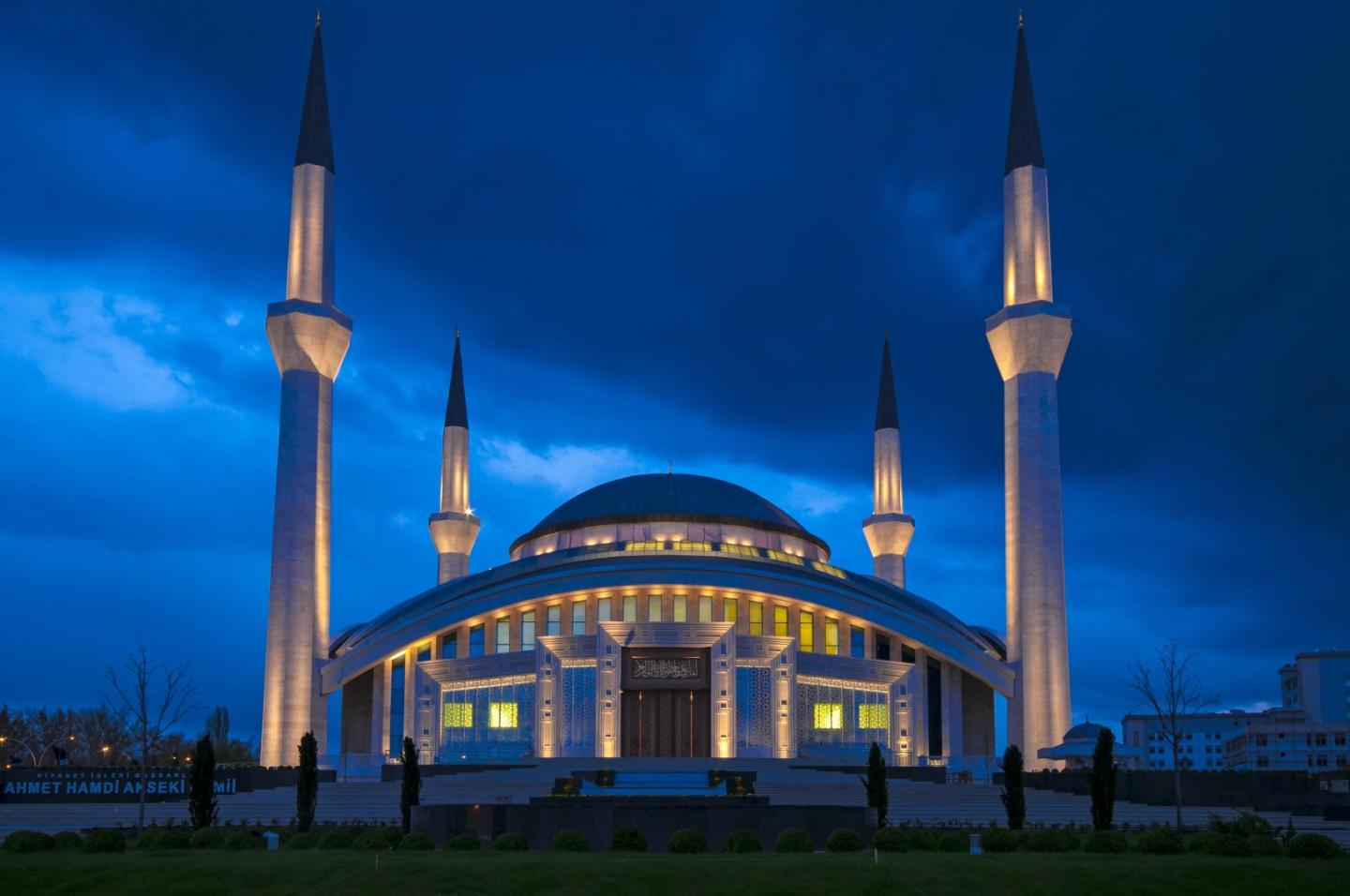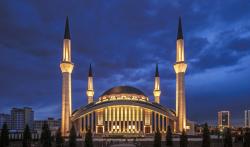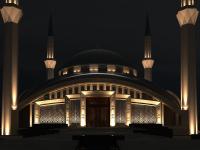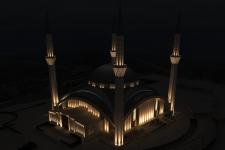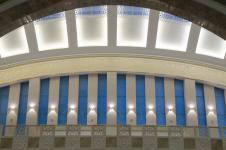Designed in a neoclassical style, the mosque has a dome of 33m diameter, four minarets of 66m height and the total closed area of 80.000m2. One of the most important symbols of the Anatolian Seljuk State (1075-1308), the Seljuk-star-pattern, is used in various places on the architecture.
The design approach in facade lighting was to create an icon for the city of Ankara. The designers wanted to enhance the perception of the architecture and to define the structure. While main architectural elements were highlighted, shadows were planned to support it. In order to ensure positive result in practice, the design team created detailed 3D modelling of the mosque and got many photorealistic renderings from different view angles.
The moonlight effect on the dome was created by directed-lights from minarets. Narrow beam fixtures were used to accent the star-shaped-section of minarets creating smoothly degrading-light-effect along the body and to highlight balconies.
Lighting the main facade, two opposite lighting strategies were applied to break the routine; while the columns were accented from front, the start-patterned daylight apertures were accented by backlighting which meanwhile emphasized the horizontal structures of the building.
V-shaped consecutive columns continuing on all facades were lit smoothly with uplights which also accentuating the bow-shaped structure.
Interior lighting approach was to create a simple, calm and peaceful environment. Daylight and artificial lighting were designed in combination. Contrary to what is usually encountered, no chandelier was used in the design. Prayer areas were lit evenly by double-focus downlights placed around the dome. Indirect lighting was used both in horizontal and vertical planes to enhance the architecture and create calmness. White the dome was homogenously lighted by RBG fixtures which offers different color options, the center-piece of it was accented with narrow-beam projectors from four vaults.
2014
2014
